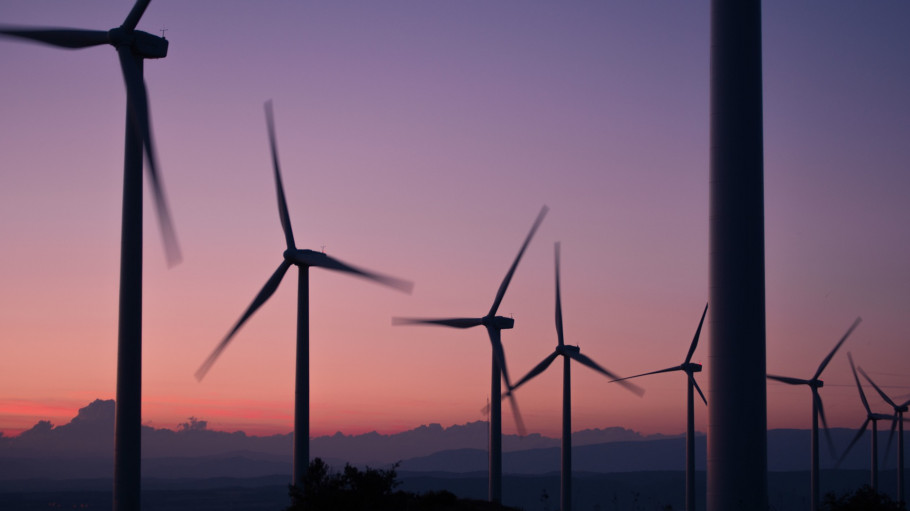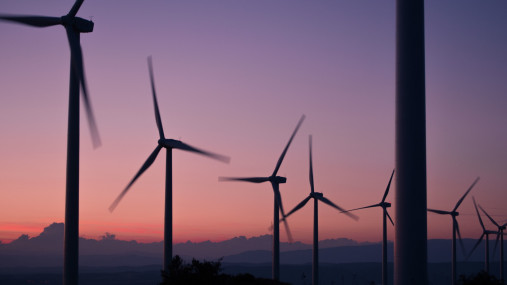
Press releases » “Sustainable finance must be available to sectors striving to decarbonise”, says EUROFER
“Sustainable finance must be available to sectors striving to decarbonise”, says EUROFER
Downloads and links
Recent updates

Brussels, 26 April 2021 – The European Commission has adopted the delegated act on the technical screening criteria for the EU sustainable finance taxonomy. The European Steel Association (EUROFER) welcomes the legislative proposal to mobilise investment in the EU to achieve sustainable growth, aligned with the Paris Agreement and EU climate goals.
“A common EU taxonomy for sustainable finance could play an important role in this process if done the right way”, said Axel Eggert, Director General of EUROFER. “The European steel industry is at the core of Europe’s transformation towards a carbon-neutral economy with carbon direct avoidance and smart carbon usage technologies ready to scale up, and with the leverage to kick-start the hydrogen economy. Access to financial investment will be key to making the change a success”.
However, EUROFER believes that if it is to work, the sustainable finance taxonomy mechanism must not lead to financial or investment leakage. It should support EU-based low-carbon projects’ financing while avoiding a further decrease in the EU steel industry’s ability to compete globally.
It is not clear the taxonomy has been entirely thought through. In particular, it relies on disconnected single reference values – so-called benchmarks – rather than considering the connections between different steel processes. The chosen benchmark set-up is the wrong approach as it does not necessarily reflect deep decarbonisation efforts by the steel industry.
“The delegated act as adopted now has the potential to hinder, or even prevent, the successful deployment of some of the most promising steel decarbonisation projects, particularly those with high potential to reduce emissions in sites that are above these unsuitable benchmarks. This includes high-potential projects deploying both hydrogen and electricity-based metallurgy”, added Mr Eggert.
“EUROFER has proposed several alternative means of determining the thresholds, as well as additional technical screening criteria to determine climate change mitigation potential – such as on-site energy efficiency measures”, said Mr Eggert. “Having the mitigation measures incorporated into an investment plan that would lead to the threshold being met should be included”.
Sustainable finance must be available to sectors striving to decarbonise, as the steel sector is doing. The EU steel industry has the ambition to reduce its emissions by 30% by 2030 and move towards carbon neutrality by 2050, under the right conditions.
“One of those conditions is access to sustainable financing over the long term”, concluded Mr Eggert. “While we welcome the EU’s Sustainable Finance Taxonomy package overall, we nevertheless remain concerned that in its current state it will not necessarily aid the EU steel industry’s decarbonisation efforts”.
Contact
Charles de Lusignan, Spokesperson and Head of Communications, +32 2 738 79 35, (charles@eurofer.be)
About the European Steel Association (EUROFER)
EUROFER AISBL is located in Brussels and was founded in 1976. It represents the entirety of steel production in the European Union. EUROFER members are steel companies and national steel federations throughout the EU. The major steel companies and national steel federations in Switzerland and Turkey are associate members.
The European Steel Association is recorded in the EU transparency register: 93038071152-83.
About the European steel industry
The European steel industry is a world leader in innovation and environmental sustainability. It has a turnover of around €170 billion and directly employs 330,000 highly-skilled people, producing on average 160 million tonnes of steel per year. More than 500 steel production sites across 22 EU Member States provide direct and indirect employment to millions more European citizens. Closely integrated with Europe’s manufacturing and construction industries, steel is the backbone for development, growth and employment in Europe.
Steel is the most versatile industrial material in the world. The thousands of different grades and types of steel developed by the industry make the modern world possible. Steel is 100% recyclable and therefore is a fundamental part of the circular economy. As a basic engineering material, steel is also an essential factor in the development and deployment of innovative, CO2-mitigating technologies, improving resource efficiency and fostering sustainable development in Europe.

Joint Industry Statement
Brussels, 11 February 2026 - The European Steel Association (EUROFER) has backed a call to action adopted by European companies and industries in Antwerp today, which includes a demand on the EU to take urgent action to bring electricity prices down as a condition for Europe’s industrial drive, competitiveness and economic resilience.
The automotive value chain is of vital importance to the EU steel industry and requires an integrated approach to realising the decarbonisation transition in a pragmatic way.